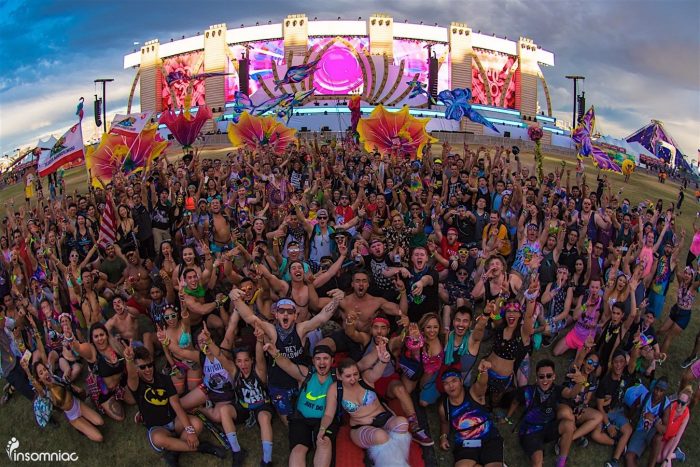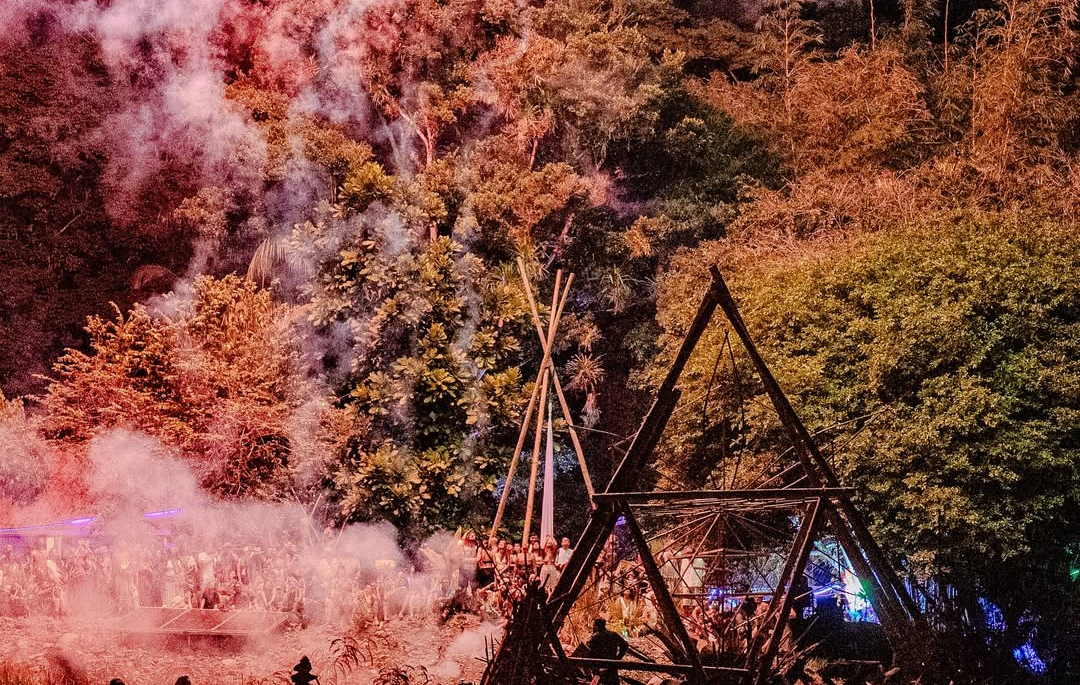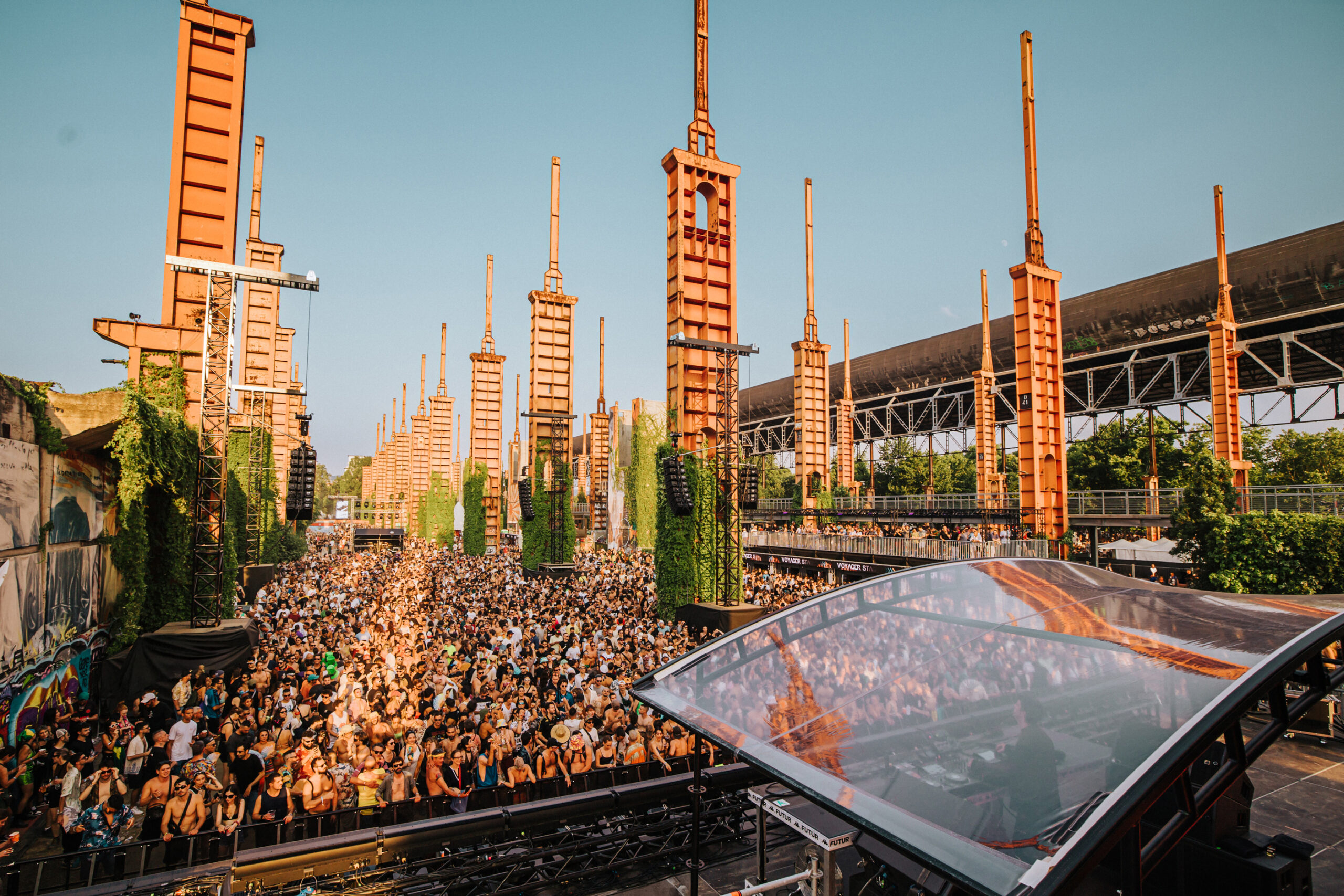Festivals have frequently been the subject of negative stereotypes, viewed as little more than excuses for people to get together and experiment with drugs, thanks largely to the reputation of underground and warehouse raves of the early 80’s and 90’s. An article recently touched on the questionable safety of women at festivals.
According to an article by Matti Huuhtanen of The Associated Press, 32 women filed reports of either sexual assault or rape at two separate festivals in Sweden in the first weekend of July.
EDM event organizers around the world are working on overcoming the stigma of sexual violence at festivals.
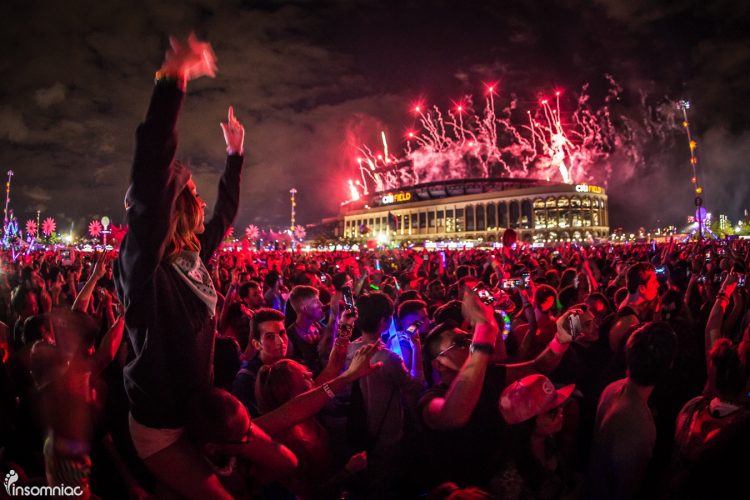
Photo Credit: Insomniac Events
In an article for the popular website .Mic, Tom Barnes mentions that reports of sexual assault or rape often go unreported during festivals “partially because they’re excessively common and partially because music festivals don’t see it being in their best interest to draw attention to them.” According to a report from the Orlando Police Department, there were zero cases of rape and/or sexual assault associated with EDC Orlando this past November.
Statistics from Rape, Abuse & Incest National Network (RAINN), for every 1,000 rapes/sexual assualts, about 34% (344 cases) are actually reported. Based on this information, I would expect that in a crowd of over 60,000 people, there would be at least one case or sexual violence reported, particularly if they are as common as Mr. Barnes would have us believe.
As a female who regularly attends festivals and other EDM events, I disagree with the belief that sexual violence is so widespread at these events. I am not so naive as to believe that they do not happen; of course they do and I’m sure many of them go unreported. The National Sexual Violence Resource Center tells us that nearly 67% of cases involving sexual violence go unreported.
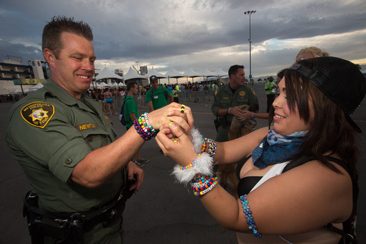
Photo credit: Electric Daisy Carnvial
Safety for all attendees is a prime concern for every staff member and volunteer working these events.
The organizers of the Electric Daisy Carnival, for example, provide multiple free water filling stations for festival goers to make sure everyone stays hydrated in the heat of the summer months, when festival season is in full swing.
People can go to any one of the various “quiet areas” to rest and recharge, and roaming safety groups whose sole responsibility is to check in with anyone who looks even remotely uncomfortable. There are even police stationed throughout the venues, and roaming EMT teams.
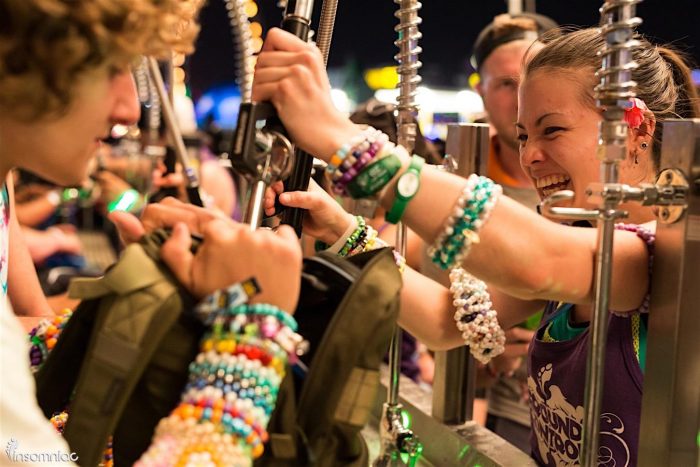
The only word I can think of to describe the feeling of a music festival is ‘home.’ You are welcomed by complete strangers into the arms of a community, into a body of love and acceptance.
I have felt more comfortable in the middle of a crowd of 60,000 ravers at a festival, nearly naked, than I have felt walking down the streets of Washington D.C fully clothed and carrying mace. I have yet to feel unsafe at a festival.
I went to my first EDC in Orlando in 2015. We agreed earlier in the day on a meeting point in case we lost each other, so when we were separated later in the night, I navigated straight to our spot. As I sat under the giant neon mushrooms in the center of the venue, a group of girls wearing the traditional EDC daisy bra came up to me and asked if I was alone and if I needed someone to sit with me for a while. I assured them that I was fine, just waiting for my girlfriends.
One of them offered to sit with me anyway until my friends arrived. We talked about our careers, music, the sets we had seen and the sets we were looking forward to. My girlfriends found me shortly after she sat down, and as we stood up to make our way to one of the other stages, this complete stranger wrapped me in a big hug and said it was great to meet me and to stay safe.
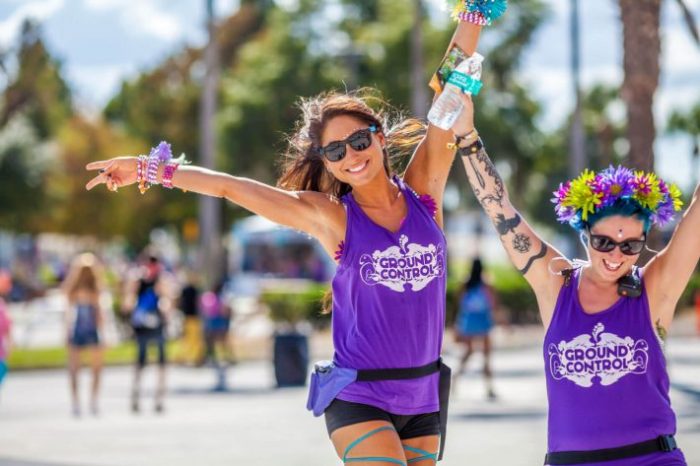
In a society where we regularly walk past people without ever registering their existence, the fact that a perfect stranger would be willing to sit with me and make sure I was safe restored my faith in humanity a little.
We look out for each other at festivals because we are family. Again, I’m not foolish enough to believe that festivals are all sunshine and roses all the time. They have a darker side, as most large gatherings of people do. There are drugs, and there are reports of assault. But to imply that the safety of its guests is not a main concern of the organizers of these festivals is foolish.
Mr. Barnes and The Associated Press both acknowledge a disturbing reality that women have learned to deal with every day. We are rarely perfectly safe. We are always at risk, no matter where we go, or who we are with, or how safe we may seem. But this is not unique to music festivals. This is unique to the female gender, regardless of age, location, political or financial station.
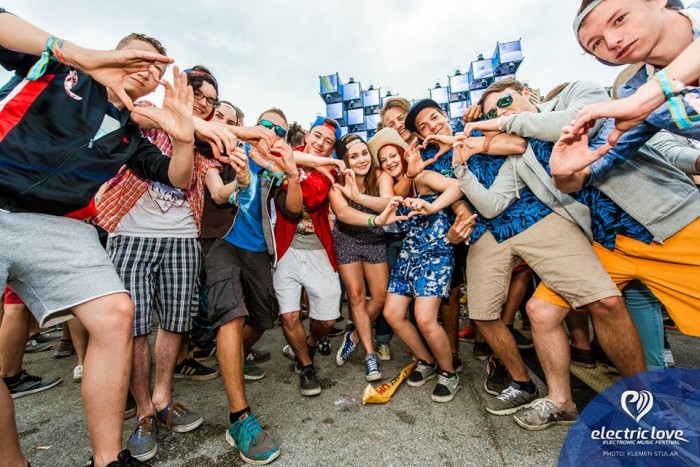
Music festivals are not at fault, and the organizers of these events are not at fault. The view of our society is at fault and these painful statistics will not change until we change the way our society thinks.
We should not be targeting the organizers of these events, or condemning them altogether. We should be teaching people that rape and sexual assault are NOT OK. That people are not objects, to be taken from at will. We should be empowering women to speak up and eliminating the stigma surrounding victims of sexual assault and rape.
In a perfect world, we should be able to walk down the street in our jeans and sweaters or dance in a crowd in skirts and crop tops, and not worry about what might happen to us. But we don’t live in a perfect world. And these fears are very real. Organizers of EDM events like Electric Daisy Carnival take these fears seriously and do what they can to prevent them, fostering a community of safety and respect.
Music festivals are meant to be places where people can come together and leave their troubles behind, lost in a world filled with music and smiles, connecting with others and creating memories.
There’s a sense of community, a sense of belonging, that is unique to festival culture. Everyone is there for the same reason: to listen to great music, to dance, to feel like they belong.
